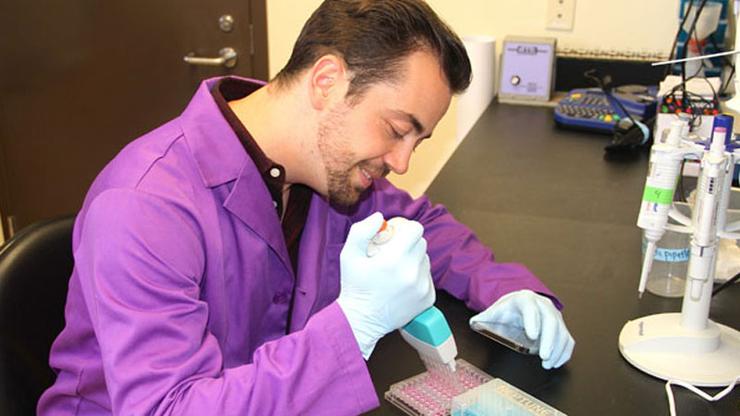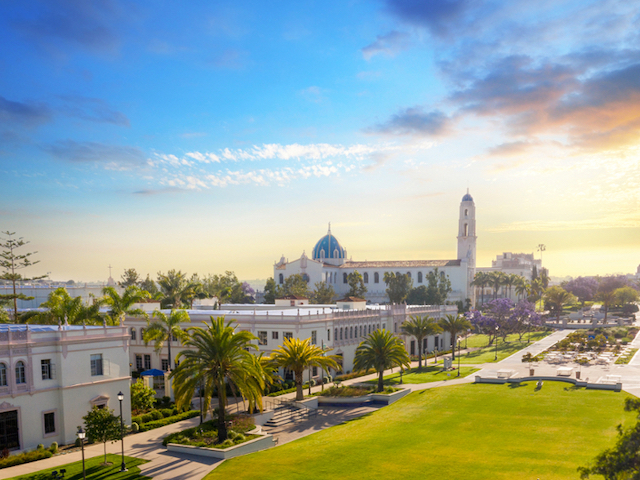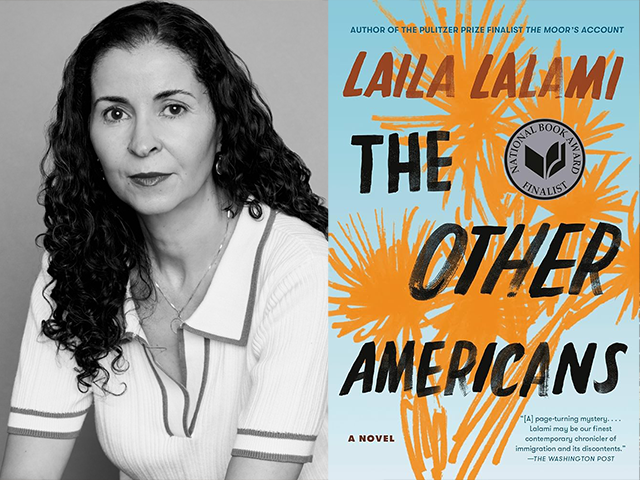Granting Diverse Access
NSF aid provides summer research experience

Desirae Mellor has had an unforgettable San Diego summer. Navy veteran Jeremiah Blondin and Iranian native Aria Rostamiasarabadi had never met 10 weeks ago, but this summer, they’ve been a great, productive team. Thomas Polveroni-Edwards, also a Navy veteran, found a project that’s tested him and will continue to do so this upcoming year and he’s looking forward to it.
Important NSF REU Grant
Ask these four, or any members of the cohort of nine college researchers who’ve been part of a 10-week National Science Foundation Research Experience for Undergraduates (NSF REU) experience since June on the University of San Diego campus and you’re sure to see what they they think about it. It’s the big smile on their face; it’s the sense of pride they have for this opportunity; and, best of all, it’s the confidence of the knowledge gained in a laboratory, classroom or other space to grow as a person.
“I applied on a whim, it’s the only one I put myself out there for and I was not expecting to be selected at all,” explains Mellor, a STEM (Science, Technology, Engineering, Mathematics) scholar at Palomar College who is set to attend California State University, San Marcos this fall. “I’m a first-generation student, I’m married to a Marine, we live on the base with two kids, one with special needs. That I’m pursuing my education is an understatement. Getting this opportunity was very big for me.”
The NSF REU grant, set to last three years, is definitely a big deal. For nine students each year — four current USD students and five current or transferring community college students and all of whom can be military veterans — having a summertime research experience is mutually beneficial.
“NSF is looking to increase diversity in the sciences,” said USD’s Office of Undergraduate Research Director Sonia Zarate. “The reason behind that is innovation. This program targets military veterans and other student populations. Having people with diverse backgrounds at our trainings, they can come in, look at a challenge and go, ‘Wow, I think I’d do it this way,’ as opposed to someone who may have not had those types of experiences.”
Productive Summer
Blondin, a Grossmont College student who was in the Navy from 2006-12, came in seeking a research experience and wanted to learn computer programming. “This experience has changed my career trajectory,” he said. “I’m changing my major when I transfer. I initially wanted to do nuclear biology, but I really want to change to biomathematics. I really like programming.”
Together with Rostamiasarabadi, an Irvine Valley College student, Blondin took quickly to USD Mathematics Professor Jane Friedman’s instructions for their research. They’ve been assessing the ability of an evolutionary algorithm, differential evolution, to fit growth curves to data and compare it with traditional methods of curve fitting. During their 10 weeks, Blondin and Rostamiasarabadi prepared two papers on their findings and submitted them for publishing. A third was to be submitted for their application to present at a conference in New York later this year. They also presented their work at the Aug. 13 UC San Diego Summer Research Conference.
“They had to teach themselves MATLAB right off the bat,” Friedman said. “They could have taken four weeks alone just to get comfortable with it. I never expected they’d get as much done as they did. If we’d gotten one paper out of it I would have considered that a major accomplishment. They’ve been fantastic students.”
Recalled Rostamiasarabadi: ”The first day she told us, ‘this is MATLAB, this is this and go work on it.’ It was really cool because we could do what we wanted with it. There were no limits.” Using laptops to solve Friedman’s problems assigned to specific algorithms, they absolutely made the most of their time.
“We wrote a program the second day,” Blondin said.
Added Rostamiasarabadi: “We got the books the first day and by the end of the second day we wrote a program. I think we had the differential evolution program written by the end of the first week.”
Excited for Research
Polveroni-Edwards, a rising senior at USD and former San Diego Mesa student, describes his research as determining whether rising temperatures due to climate change affect the Sodium Hydrogen Exchanger (NHE1) and what the repercussions of that effect may be for the metabolism of small organisms.
Working in the lab with popular USD faculty mentor Joseph Provost, a chemistry professor and a co-principal investigator of the NSF REU grant, Polveroni-Edwards said that despite early struggles to get tangible results, he’s looking forward to working on it more this year.
“I really like the techniques and the work that goes into it. A lot of what I’m doing is method development,” he said. “We’re using some pretty interesting technology. We’re using a special microscope and scanning lasers to take images of florescent proteins to see where in the cells they bind.”
The summer research experience is essential for all participants — the others in the cohort are USD students Danny Cerda, Yuri Bejarano and Shawn Wright and non-USD students Ashley Messmore and Inri Rodriguez — and Provost enjoys being in a position to give “another spectrum of students that we don’t normally get or who would have a hard time impacting” an opportunity. He’s especially enjoyed his time with the student veterans because of his own undergraduate days.
“[Research] is what kept me going in college. I came out of the Army. It’s where I got some discipline, but I didn’t have direction. Being able to do research with a faculty mentor meant the world to me,” Provost said.
He and USD Biology Professor Adam Haberman, who is Mellor’s faculty mentor, have been valuable with their career and graduate school advice for the latter. But Mellor’s current research is what has driven her, “empowered” her.
Mellor has studied the effects of oxidative stress on neuronal degeneration in Drosophilia.
“We’re studying the neurons in late life. We have a group of genes we believe can help keep neurons alive because they’re found in large quantities and late in life. We’re knocking out the genes and exposing the neurons to oxidative stress to determine two things — do these genes protect against oxidative stress, which is a stress in late life, or do they just help preserve the health itself?”
The Complete Research Scientist
When the cohort isn’t doing research — all of which focuses on climate change from engineering, science and computer science perspectives — the program provides a viable stipend, students can have free on-campus summer housing at USD for 10 weeks and there are workshops on personal development, learning library and EndNote skills, writing science research and attending a summer scholars mixer. The program concluded August 14. Altogether, it’s been a great San Diego summer — for adult scholars.
“I think it is an amazing complement to people’s understanding of diversity and diversity in STEM. A lot of people have preconceived notions of what diversity is. When you look at this cohort and see what they’re doing, it’s amazing,” said NSF REU Coordinator Ramiro Frausto. “It’s truly a diverse group that’s accomplishing some amazing things and they’ve overcome some incredible obstacles to get where they are. For them to solidify and build a foundation for their identities as scientists, wherever it may take them, they can leave this program feeling confident in themselves as scientists.”
— Ryan T. Blystone



